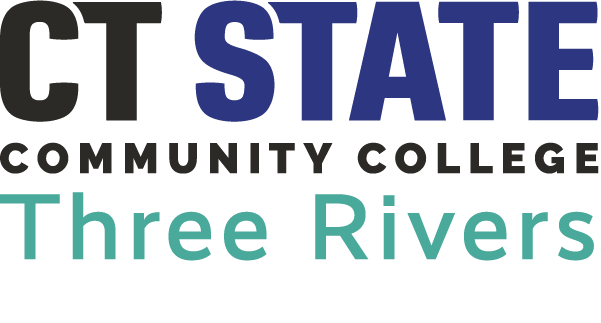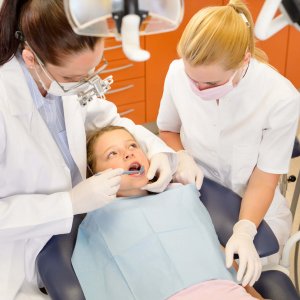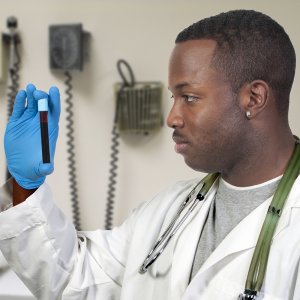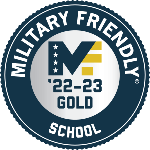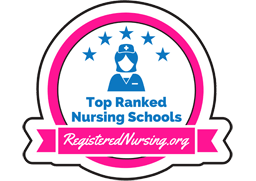Allied Health
Three Rivers offers non-credit training programs and certification in some of the fastest-growing health care careers in Connecticut. Here are our offerings.
American Heart Association Basic Life Support (AHA BLS)
Basic Life Support is the foundation for saving lives after cardiac arrest. This four-hour course teaches both single-rescuer and team basic support skills for application in prehospital and in-facility environments, focusing on high-quality CPR and team dynamics. Learn more.
Central Sterile Processing Technician
This program includes 80 hours program includes classroom time covering decontamination and sterilization processing, anatomy and physiology, microbiology infection control, and identification of surgical instruments. Students will also be required to complete a clinical externship. Central Sterile Processing Technicians (CSPT) are responsible for packaging surgical instruments in hospitals, medical offices, surgical centers, and clinics. Learn more
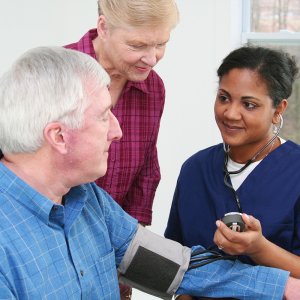 Certified Nurse Aide (CNA)
Certified Nurse Aide (CNA)
The Certified Nurse Aide training program is designed to prepare individuals with the necessary skills and knowledge to become a Certified Nurse Aide, the first step to a career in the medical field. Upon successful completion of this 105 hour course, the graduate will be qualified to be placed on the State Certified Nurse Aide Registry. Learn more.
Community Health Worker
In partnership with the Health Education Center, our NEW Community Health Worker program consists of 90 classroom hours and an additional 50 hours of practicum experience. This program is designed to train individuals to work alongside clinically-trained healthcare professionals to facilitate access to health care services. Learn More
Dental Assistant
This 2-semester program consists of 200 lecture/lab hours + 150 clinical hours at an offsite location and is designed to introduce students into the dental profession. It will teach students about what is required to work in a dental practice. Topics include; infection control, dental charting, preparing the patient, basic chair-side assisting, dental instruments and hand-pieces, tray set-up and procedures, dental materials, and more. Learn more.
EKG Technician
EKG Technicians are responsible for performing electrocardiogram (EKG) tests in order to monitor and record electrical impulses transmitted by the heart. This comprehensive 40-hour EKG Technician Certification Program prepares students to function as EKG Technicians and take their national certification exams. Learn more.
Introduction to Medical Cannabis
This course provides introductory knowledge about cannabis as well as detailed information about how medical cannabis is practiced in Connecticut. This class will explore approved medical conditions and how cannabis can be used to treat them. A variety of topics including state laws on medical marijuana, the chemical composition of cannabis, and how it plays a role in human physiology and pharmacology. Learn more.
Professional Medical Billing and Coding
This one-year (3 semester) program trains you to work with billing systems, insurance coding, and patient charts in physician offices, outpatient hospital facilities, even insurance companies, and more. Upon completion of the program, you will be prepared to apply to become nationally certified as a CPC-A (Certified Professional Coder Apprentice) by the American Academy of Professional Coders (AAPC). Learn more.
Pharmacy Technician
This 134 hour program trains you to be a pharmacy technician who will work under the supervision of a registered pharmacist at pharmacies in hospitals, clinics, retail pharmacies, and other facilities. A pharmacy technician’s main responsibility is filling prescriptions according to doctors’ orders for dispensing to patients. Learn more.
Phlebotomy Technician
This accelerated 120 hour program trains you to be an important member of the clinical laboratory team, drawing blood from patients, transporting the blood specimens to the laboratory to prepare for testing, and entering patient data into computer systems. You will be prepared for entry-level competencies as phlebotomists in hospitals, clinics, blood banks, and other healthcare settings. Learn more.
Veterinary Assistant
Veterinary Assistants are a critical part of the veterinary practice team. From patient care to client education, veterinary assistants contribute in many important ways. The Veterinary Assistant program trains people for a career working as a veterinary assistant. Learn more.
